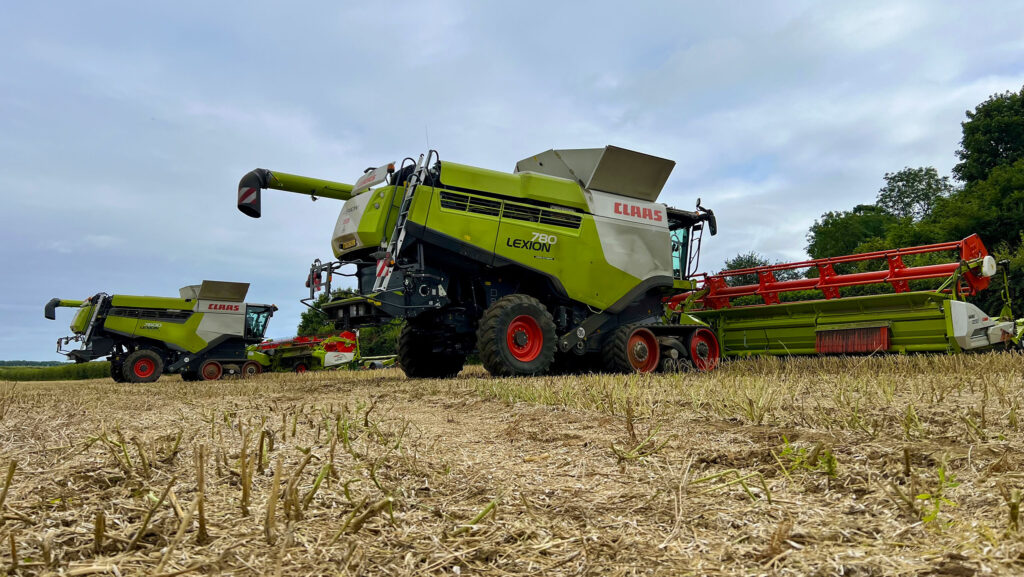Low OSR production raises concerns as harvest hits full swing
 OSR harvest 2024 on Summerfield farm © Jason
jasonh5524@hotmail.co.uk
OSR harvest 2024 on Summerfield farm © Jason
jasonh5524@hotmail.co.uk Poor rapeseed yields and one of the smallest UK harvest areas on record could lead to oilseed rape production slipping below 900,000t, increasing the UK’s dependence on imports and pushing prices above £400/t.
This year, the UK is expected to import more OSR than it produces for the first time ever, reports United Oilseeds, with the harvest area down at its lowest level for 40 years and average yields forecast to be lower than other European countries.
Yields from this year’s rapeseed harvest so far have generally been between 2.5t/ha and 3.5t/ha, according to CRM AgriCommodities, which compares to an overall average of 3.4t/ha during the last 10 years.
See also: Oilseeds trading at £376/t with EU rapeseed crop set to shrink
Analysts at the firm said that a “somewhat disappointing UK rapeseed harvest” matches results from France, where a 4m tonne crop remains a possibility, which would be 7% down on the year.
In Europe, the situation is similar with the delayed rapeseed harvest now under way and yields below average.
The EU’s most recent Mars monthly crop monitoring report, published on 22 July, cut average rapeseed yields by 2% on earlier forecasts to 3.1t/ha.
James Webster, senior agribusiness analyst at the Andersons Centre, said:
“With lower areas of the crop in both the EU and UK recently, generally supply is tighter, which is starting to make OSR look attractive again to the UK grower.”
He added: “The price of OSR is £395/t to £405/t ex-farm for 2024 and 2025 harvest, and with the addition of quality bonuses for admixture, and oil and moisture content which growers can achieve, this makes a convincing financial case for growing OSR.”
Call for growers
United Oilseeds managing director James Warner has written an open letter outlining the importance of oilseed rape to UK agriculture.
Mr Warner said: “From a farmer’s perspective, there are plenty of reasons to want OSR in the rotation. It offers a true break from cereals in both pests and diseases and benefits subsequent first wheat yields.
“It improves soil structure, enables an early start to harvest, helps control problem weeds, and offers the potential for early cashflow at the most expensive time of year.
He concluded: “Plenty of people have asked me whether I am worried about the future for OSR in the UK.
“My answer is no, I’m not. Yes, there is plenty of work to do, and the current situation is not ideal, but with United Oilseeds leading the way, I’m completely confident we can find the solutions needed to return to better self-sufficiency with our home-grown OSR crop.”
